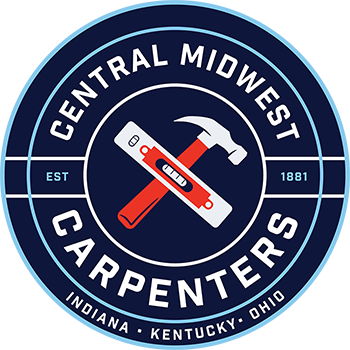NEWS
HOT ITEM


Recent News
 2024 Indiana Kentucky Graduate Speaker – Kyle HarveyMarch 28, 2025 - 1:49 pm
2024 Indiana Kentucky Graduate Speaker – Kyle HarveyMarch 28, 2025 - 1:49 pm Military Outreach Makes Big ImpactMarch 24, 2025 - 3:29 pm
Military Outreach Makes Big ImpactMarch 24, 2025 - 3:29 pm 2025 Central Midwest Sisterhood UpdateMarch 3, 2025 - 5:13 pm
2025 Central Midwest Sisterhood UpdateMarch 3, 2025 - 5:13 pm Craft Spotlight – Justin RogersFebruary 26, 2025 - 4:44 pm
Craft Spotlight – Justin RogersFebruary 26, 2025 - 4:44 pm Ohio’s Newest Journey-Level Carpenters: Class of 2025February 25, 2025 - 12:55 pm
Ohio’s Newest Journey-Level Carpenters: Class of 2025February 25, 2025 - 12:55 pm Craft Spotlight – Brandon HuffmanFebruary 19, 2025 - 3:26 pm
Craft Spotlight – Brandon HuffmanFebruary 19, 2025 - 3:26 pm Craft Spotlight – Ron HeimelFebruary 5, 2025 - 5:14 pm
Craft Spotlight – Ron HeimelFebruary 5, 2025 - 5:14 pm


Avoid the perp, walk: workers’ comp. premium fraud
/0 Comments/in News /by IKORCC“There are a few basic types of employer workers’ comp fraud, with diverse variations stemming from those few types.
“One instance of fraud involves paying employees cash off the books so that the amount of payroll on which premiums are calculated is reduced, thereby reducing premiums.”
“Along those same lines are cases when employers intentionally misclassify employees as independent contractors.”
“Yet another common scheme is using shell companies, or companies set up for the sole purpose of paying employees without paying workers’ comp insurance and other benefits or taxes. This can be a company that the employer sets up himself or a third party who poses as a single-man operation with minimal insurance and minimal paperwork — just enough to avoid raising questions during an insurance premium audit.”
“Perhaps the strongest enforcement assets are contractors themselves.
‘”When you get burned on a job, and you didn’t get the award because somebody’s doing it for a price you know they can’t, (other employers) just turn them in,” [Mark] Sierra [construction insurance expert and consultant] said. “Then the state has people that go out on job sites and inspect them. So, yes, the competition definitely helps police it.”
[William] Canak [professor, Middle Tennessee State University] added, “At a national level over the last decade, there’s been much greater recognition that there are a lot of people breaking the rules and that it negatively affects the proper functioning of the marketplace for employers and employees. It harms the community, it harms the workers and it harms law-abiding employers. So we’re seeing these initiatives roll out, and that’s good. It can’t all happen at once, but we’re making a lot of progress.”’
Construction Dive, January 26, 2016
Engels on Transition Team
/0 Comments/in News /by IKORCCJon Bel Edwards was elected Governor of Louisiana. He appointed Executive Secretary-Treasurer Jason Engels to his economic development transition team. The team will make recommendations on job training and workforce development. Recently, Jason appeared on New Orleans News 8 in a three-part series exposing payroll fraud in the Louisiana construction industry.
Cash Pay Schemes Spreading
/0 Comments/in News /by IKORCCFlorida is not the only state seeing check cashers and contractors conspiring to pay workers off-the-books. A bar owner in the Bronx and a pawn shop owner in New Jersey were arrested after a Port Authority and Manhattan DA investigation into contractors underreporting payroll. Contractors’ workers were paid in cash to evade paying taxes and workers’ compensation premiums. The defendants are accused of cashing almost $17 million in checks for 19 businesses from 2012 to 2014.
According to court papers, a contractor brought a $149,250 check to the bar and received $141,787. The check was then brought to the pawn shop where it was deposited for $147,011 in cash which was brought back to the bar.
USDOL Issues Guidance on Joint Employment
/0 Comments/in News /by IKORCCOne of the primary schemes of corrupt contractors is using subcontractors and labor brokers that pay employees off-the-books or as 1099 subcontractors to evade paying employment taxes, workers’ compensation premiums, overtime and wages. When faced with law enforcement, corrupt contractors use that subcontract relationship as a shield against accountability. But when looked at closely, the contractor often times acts like an employer of the workers just as much as the subcontractors or labor brokers. It is a growing trend and construction is not the only industry facing the problem.
In response, the US Department of Labor issued an Administrative Interpretation (AI) of joint employment under the Fair Labor Standards Act (FLSA). Joint employment under the FLSA makes the contractor and subcontractor or labor broker separately and jointly liable for unpaid wages and overtime if the contractor is also acting as an employer of the workforce. The AI does not change the law, it provided guidance on existing law and gives notice to employers that the USDOL will use joint-employment findings more often.
Dr. David Weil, Administrator of the USDOL Wage & Hour Divisions wrote, “As the workplace continues to fissure, and as the employment relationships continue to become more tenuous and murky, we will continue to identify where joint employment applies and hold all employers responsible.”
In a press release supporting the USDOL’s action, General President Doug McCarron said, “This action by the Labor Department lets cheating contractors know that they can’t continue to hide behind their labor broker subcontracts.”
Construction Co. Owners Face Racketeering Charges in Florida
/0 Comments/in News /by IKORCCGaetan Richard and Murray Rice were arrested this month on numerous charges, including racketeering, related to workers’ compensation fraud. According to state records, they have two active construction businesses: Richard and Rice Construction LLC and Richard & Rice Construction Co., Inc. Four other co-defendants were also arrested.
The alleged criminal scheme involved paying workers through over twenty shell companies. Over the course of about two years, Richard and Rice paid the shell companies nearly $40 million. According to an affidavit from the investigating detective, more that $12 million in workers’ compensation premiums and over $3 million in federal payroll taxes went unpaid.
If convicted, they could face 30 years in prison.